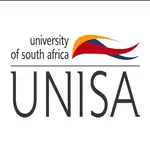UNISA Short Course in Disaster Management (Contact)
University of South Africa Short Course in Disaster Management (Contact)
The “Programme in Disaster Management” at UNISA is a comprehensive course designed for professionals working in various capacities related to disaster, risk, and emergency management. Here’s an overview of the course details:
Duration
One year.
Language Medium
English.
Target Group
This program is ideal for personnel in public or private sectors such as disaster and risk managers, development officials, emergency responders, government officials, NGO and CBO members, and others in related fields.
Admission Requirements
A Senior Certificate or an equivalent NQF level 4 qualification.
Registration Periods
Year Registration: December to January and or June to July.
Course Leader Details
Prof G Naidoo
Expertise: Language Education.
Department: Centre for Public Administration and Management.
Location: Office 121, AJH van der Walt Building, Muckleneuk campus.
Contact: Tel: 012 429 6746, Email: naidog@unisa.ac.za.
Programme Administrator
Admin Officer
Location: Unisa Centre for Lifelong Learning, 360 Lillian Ngoyi Street, Pretoria Central, Solomon Mahlangu Building 2nd floor.
Contact: Tel: 012 352 4288, Email: UCL@unisa.ac.za.
Application Link
Purpose Statement
The course aims to train individuals in public and private institutions on various issues relating to disaster management. It covers regional disaster profiles, vulnerability and risk assessment, prevention, mitigation, preparedness, rehabilitation, reconstruction, and relevant legislation.
Modules and Content Topics
DPDM01K – Introduction to Disaster Management: Covers types of disasters, factors causing disasters, terminology, UN response to disasters, disaster and business continuity management in South Africa, and relevant legislation.
DPDM02L – Institutional Capacity: Focuses on policy direction, planning and funding, disaster management responsibilities, joint consultation and cooperation, disaster management center operations, communication and information management.
DPDM03L – Risk Assessment and Monitoring: Deals with risk assessment, risk profile, risk monitoring, and dissemination of information and quality control.
DPDM04N – Risk Reduction Planning and Implementation: Includes strategy planning for prevention and mitigation, project prioritization, development of risk reduction plans, and integrating risk reduction into development plans.
DPDM05P – Operational Response and Recovery: Focuses on preparedness, disaster assessment, integrated incident management response plans, recovery plans and relief measures, and reconstruction and rehabilitation.
DPDM06Q – Education, Training and Awareness: Covers disaster awareness, training programs, accredited training, publications, publicity, media relations, and research and advisory services.
DPDM07R – Monitoring, Evaluation and Improvement: Involves audit, maintenance, key performance areas and indicators in disaster management.
DPDM08S – Management: Emphasizes project and program management aspects.
This program is particularly beneficial for those looking to enhance their skills and knowledge in disaster management, offering a well-rounded education that addresses various aspects of the field. The course is structured to provide a blend of theoretical knowledge and practical skills, preparing participants to effectively manage disaster-related challenges.





